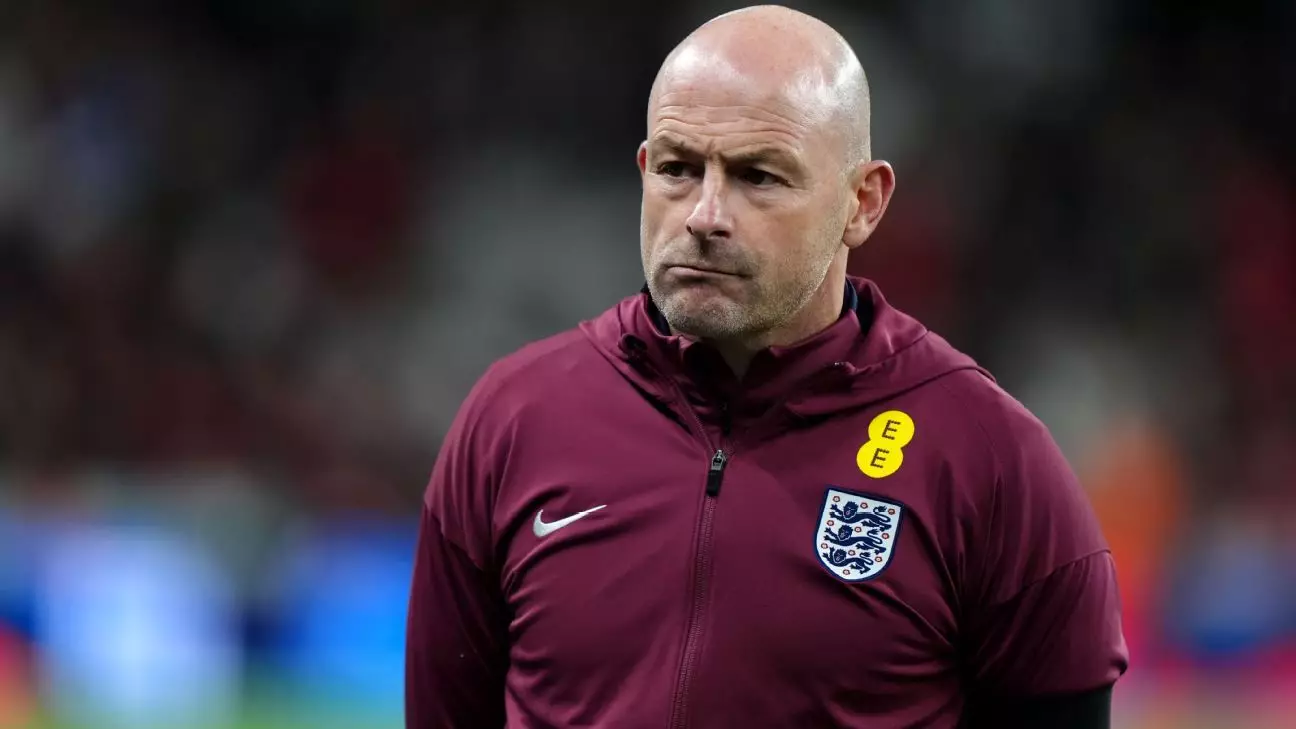The recent UEFA Nations League match between England and Greece revealed glaring flaws in the interim management of Lee Carsley. Despite the presence of an exceptional cohort of young talents, the experimental formation led to a disappointing 2-1 loss against a team that had previously struggled on the international stage. This result not only stifled Carsley’s chances for a permanent managerial role but also raised several critical questions about England’s tactical approach and the management of their offensive players.
When the squad was announced, there were high hopes for an exciting and dynamic display of football. England fans anticipated a thrilling performance with star players such as Bukayo Saka, Jude Bellingham, Phil Foden, Cole Palmer, and Anthony Gordon. Collectively, these young attackers have shown immense potential in their club performances, leading to the assumption that they could thrive together on the international stage. However, Carsley’s decision to deploy them all at once proved to be their undoing. The tactical experiment backfired, highlighting a disconnect not only among the players but also in the overarching strategy employed by the interim manager.
A Tactical Mess
From the kickoff, it was evident that the players lacked cohesion. Carsley’s attempt to field a plethora of attacking players resulted in a disjointed and ineffective display. Instead of a fluid attacking strategy, England’s offense resembled a disorganized scramble. The players were caught in a tactical muddle, with no clear roles outlined, which led to Greece taking advantage of the gaps left in England’s defensive line. As Carsley himself admitted, the initial phases of the game highlighted significant weaknesses, leaving the team without a clear direction.
In truth, Carsley’s tactics exposed England’s vulnerabilities; while the attacking players were preoccupied with going forward, the defensive line struggled to maintain solidarity. The midfield, once thought to be a creative hub, fell prey to the fast-paced counter-attacks of the Greek team. Declan Rice, often lauded for his defensive capabilities, found himself overwhelmed as he was left to deal with multiple attacking threats alone due to his teammates being drawn too far forward.
The Rise of Greece
Conversely, Greece seized the opportunity presented to them. They capitalized on England’s lack of organization, finding gaps in the defense and exploiting them with swift counter-attacks. The Greeks were not merely participants; they were dominant, showcasing an impressive display that included five goals, two of which were ruled offside. Their tactical approach was much more disciplined, demonstrating a well-defined strategy that proved far more effective than England’s chaotic endeavor.
When Vangelis Pavlidis scored the dramatic stoppage-time winner, it encapsulated the evening’s narrative—Greece’s lust for victory contrasted strikingly with England’s bewilderment. The win marked a historical moment for Greece, who achieved their first-ever victory over England. It serves as a stark reminder of the unpredictability of international football, where renowned teams can falter against lesser-ranked opponents.
After the defeat, the dialogue surrounding Carsley’s potential as a permanent manager for the national squad must change in tone and context. While initial success against teams like the Republic of Ireland had raised some hopes, this loss against a lower-ranked opponent punctuates the pressing concerns about his decision-making and readiness to helm the national team full-time.
Fans and analysts alike will argue that England’s abundance of attacking talent should have yielded better results. The failure to produce cohesive and dangerous attacks leaves the debate regarding their compatibility unresolved. Rather than dispelling doubts, this encounter has only amplified them, forcing stakeholders within the Football Association to reconsider their search for a full-time manager.
Looking Ahead
As England prepares for their next challenge in Finland, Carsley faces a significant crossroads. This defeat served as an abrupt wake-up call, illustrating the necessity for tactical clarity, balanced formations, and a commitment to defensive solidity. For the players, it serves as a lesson in the importance of teamwork and mutual understanding, vital elements often overlooked in the pursuit of individual flair.
The match against Greece will likely linger in the minds of fans, players, and management alike, illustrating the fragile nature of success in football. As England seeks to bounce back and regain their stature, the lessons learned from this disappointing encounter must inform their future strategies and decisions, both on and off the pitch. The journey is just beginning, and it rests on finding a cohesive identity that honors the talents of its young stars while ensuring tactical integrity.


Leave a Reply